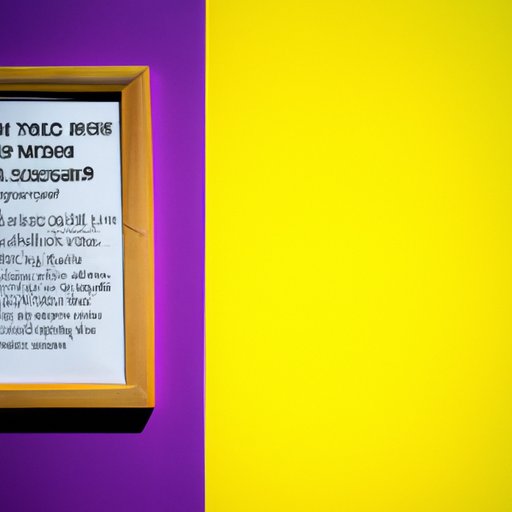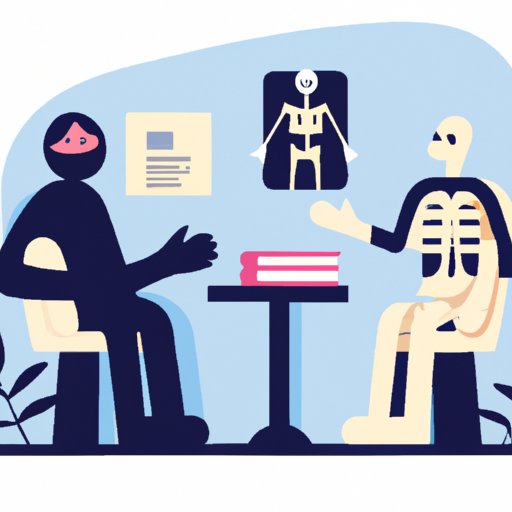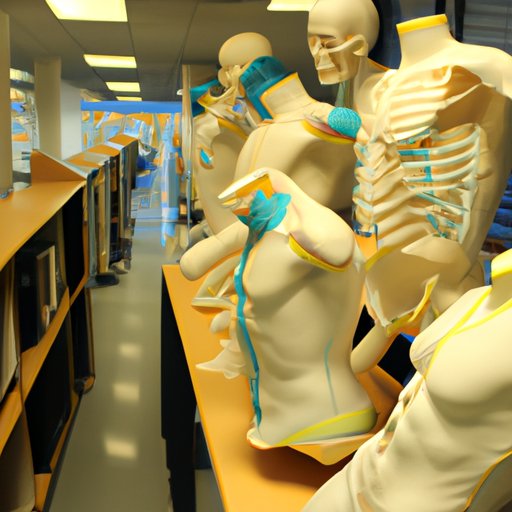Introduction
Donating your body to science after death is a way for individuals to give back to society in their passing. By donating your body to science, you can contribute to the advancement of medical knowledge and potentially save lives. But what does it mean to donate your body to science? And what are the pros and cons of doing so? In this article, we’ll explore these questions and more to provide an in-depth look at the process of donating your body to science after death.
Explaining the Process of Donating Your Body to Science After Death
Donating your body to science is when you make arrangements to have your body donated to a medical institution or research facility after death. This donation is typically used for medical research and training purposes. When donating your body to science after death, most institutions require that you fill out specific paperwork ahead of time to ensure that your wishes are followed.
Once the paperwork is completed, the medical institution or research facility will take possession of the body once the individual has passed away. They will then use the body for medical research, training, or other purposes as needed. Depending on the institution, the body may be kept for a few months or years, or even indefinitely. After the body has been used for its intended purpose, it will be cremated and the ashes returned to the family or disposed of in accordance with the wishes of the individual.

Pros and Cons of Donating Your Body to Science After Death
Donating your body to science after death can bring both benefits and drawbacks. It’s important to understand both sides before making your decision. Here are some of the pros and cons of donating your body to science after death.
Benefits of Donating Your Body to Science After Death
One of the main benefits of donating your body to science after death is that you can help advance medical knowledge and potentially save lives. Your body can be used to train medical students and doctors, as well as conduct medical research that could lead to medical breakthroughs. Additionally, donating your body to science after death can be cost-effective for your family since many institutions will cover the costs associated with transporting and disposing of the body.
Drawbacks of Donating Your Body to Science After Death
One of the potential drawbacks of donating your body to science after death is that you may not know exactly how your body will be used. Additionally, there are some religious beliefs that may not be in favor of donating your body to science after death. Finally, depending on the institution, it may take up to several months or even years for the body to be returned to the family for a funeral service.

Interview with a Scientist Who Has Used Donated Bodies for Research
To get a better understanding of how donated bodies are used for medical research, we interviewed Dr. Maria Lopez, a biomedical researcher who has used donated bodies for her research. Here’s what she had to say.
Background of the Scientist
Dr. Lopez is a biomedical researcher at the University of California, San Francisco. She has been researching new treatments for cancer and other diseases for the past 10 years.
How the Scientist Uses Donated Bodies in Research
Dr. Lopez uses donated bodies to study the effects of different treatments on human tissue. She says that donated bodies are invaluable in her research because they provide her with the opportunity to study real-world scenarios and see how treatments interact with the human body. Additionally, she uses donated bodies to train medical students and doctors in proper surgical techniques.
Benefits of Using Donated Bodies
According to Dr. Lopez, one of the biggest benefits of using donated bodies is that it allows her to gain a deeper understanding of how treatments interact with the human body. Additionally, she says that donated bodies are essential for training medical students and doctors in proper surgical techniques. Finally, donated bodies can provide invaluable insight into the effects of certain treatments that would otherwise be impossible to study.

How Donated Bodies Help Advance Medical Knowledge
Donated bodies play an invaluable role in advancing medical knowledge. Through donated bodies, researchers can study the effects of treatments on human tissue and develop new treatments for a variety of diseases. Additionally, donated bodies are essential for training medical students and doctors in proper surgical techniques. Finally, donated bodies can provide insight into the effects of certain treatments that would otherwise be impossible to study.
What Types of Research Are Performed on Donated Bodies?
Donated bodies are used for a variety of research purposes. Some of the most common types of research conducted on donated bodies include studying the effects of treatments on human tissue, training medical students and doctors in proper surgical techniques, and providing insight into the effects of certain treatments that would otherwise be impossible to study. Additionally, donated bodies are often used to create anatomical models and 3D printed organs for medical research.
Common Misconceptions About Donating Your Body to Science
There are a number of misconceptions about donating your body to science after death. One of the most common myths is that the body will be used for unethical experiments. However, this is not true. All donated bodies are used for legitimate medical research and training purposes. Additionally, some people believe that the body will not be returned to the family for a funeral service. However, depending on the institution, the body may be returned to the family in a few months or even years.
What Do You Need to Consider Before Donating Your Body to Science?
Before donating your body to science after death, there are a few important factors to consider. First, make sure you understand the process and what paperwork is required. Additionally, it’s important to consider any religious or cultural beliefs that may conflict with donating your body to science. Finally, make sure you understand the potential obstacles you may encounter when donating your body to science, such as the possibility that the body may not be returned to the family for a funeral service.
Conclusion
Donating your body to science after death can be a meaningful way to give back to society in your passing. By donating your body to science, you can contribute to the advancement of medical knowledge and potentially save lives. However, it’s important to understand both the pros and cons of donating your body to science before making your decision. We hope this article has helped you gain a better understanding of the process of donating your body to science after death.
(Note: Is this article not meeting your expectations? Do you have knowledge or insights to share? Unlock new opportunities and expand your reach by joining our authors team. Click Registration to join us and share your expertise with our readers.)
